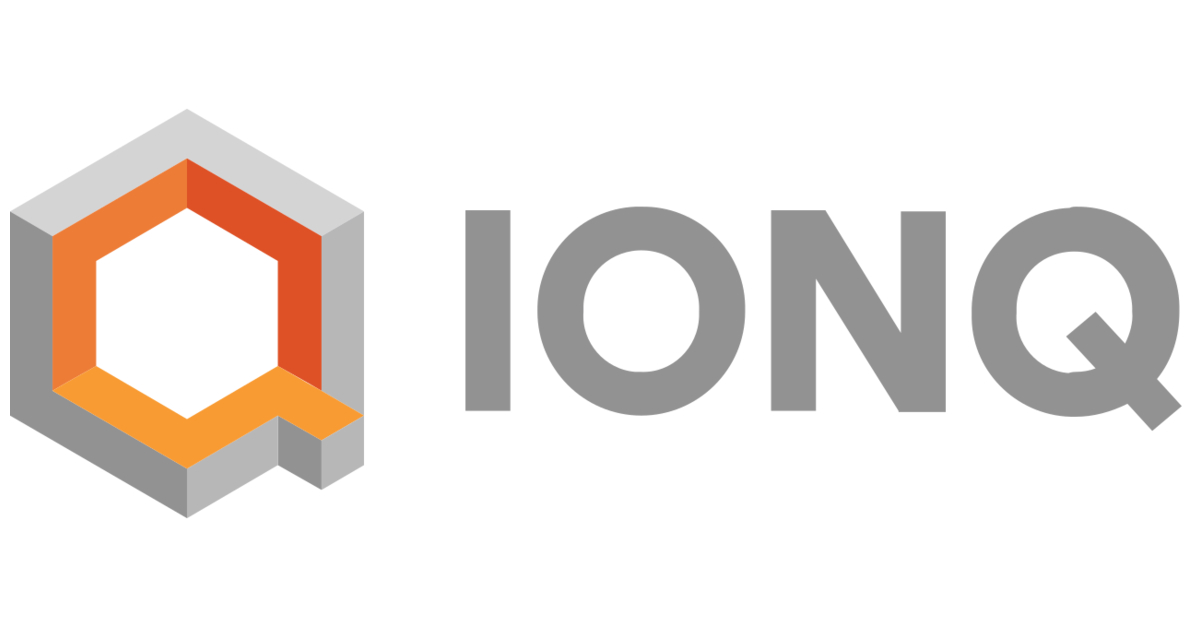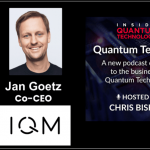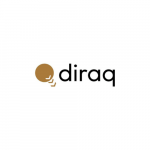Quantum News Briefs: March 27, 2024: SandboxAQ Redefines Cybersecurity with Unified Cryptography Management; Classiq Advances the HPC Quantum Computing Stack by Integrating Classiq’s Engine with NVIDIA CUDA-Q; OrangeQS accelerates its roadmap, announces first customer for its Industry System; IonQ Hires Algorithm Expert Dr. Martin Roetteler to Lead IonQ’s Quantum Applications Team; EU Member States Commit to Cooperating on World-Class Quantum Tech; and MORE!

Quantum News Briefs: March 27, 2024:
SandboxAQ Redefines Cybersecurity with Unified Cryptography Management
![]()
SandboxAQ has officially made its AQtive Guard platform generally available (GA) across all sectors, introducing a sophisticated solution to bolster defenses against the rising threats of AI-driven and quantum attacks. In light of a significant uptick in ransomware and data breaches in 2023, AQtive Guard arrives as a timely response, offering advanced cryptography management capabilities that streamline the detection and management of vulnerable cryptographic algorithms. This move marks a critical advancement in cybersecurity, positioning AQtive Guard as a key player in shifting from reactive to proactive security measures. The platform supports the core principles of Zero Trust—continuous monitoring, policy compliance, encryption, and trustworthiness of users and devices—and offers enhanced business continuity, risk management, compliance automation, and policy enforcement. With its proven efficacy in diverse and demanding IT environments, including notable clients like the U.S. Air Force and SoftBank Telecom, AQtive Guard exemplifies SandboxAQ’s commitment to evolving cybersecurity infrastructure, preparing organizations for future cryptographic standards while fostering global partnerships with leading cybersecurity teams.
Classiq Advances the HPC Quantum Computing Stack by Integrating Classiq’s Engine with NVIDIA CUDA-Q
![]()
Classiq, a forefront player in quantum computing software, has announced its integration with NVIDIA’s CUDA-Q platform, a move set to enhance the development and execution of quantum circuits for various applications, including simulations and machine learning. This collaboration, unveiled after NVIDIA’s GTC conference announcement, capitalizes on Classiq’s advanced true compilation technology for quantum circuit synthesis, automating the quantum programming process. This technology facilitates the creation of quantum software and ensures compatibility with a diverse range of quantum hardware and NVIDIA GPUs. Highlighting the significance of this integration, Classiq and NVIDIA previously showcased a quantum computational fluid dynamics breakthrough, further underscoring the potential of combining high-performance computing (HPC) with quantum computing. This partnership aims to streamline access to optimized quantum and hybrid quantum-classical algorithms for CUDA-Q and HPC users, marking a pivotal step towards bridging the gap between HPC and quantum computation and fostering the development of innovative solutions across healthcare, materials science, engineering, and finance.
OrangeQS accelerates its roadmap, announces first customer for its Industry System
Orange Quantum Systems (OrangeQS) is making significant strides in the quantum computing industry with the early sale of its OrangeQS Industry System, designed to revolutionize the testing of quantum chips. Set to launch later this year, this system facilitates the automated testing of 100+ qubit quantum chips, marking a pivotal shift from labor-intensive, manual processes to streamlined, automated operations. This advancement reflects the growing maturity of the quantum technology sector, moving from experimental lab work to scalable industrial production. The purchase by a leading full-stack quantum computing firm, which develops its quantum chips in-house, underscores the market’s readiness for this innovation. OrangeQS’s system promises to expedite the development of quantum chips by enabling high-throughput testing, reducing the complexity, effort, and cost associated with traditional testing methods. This shift not only accelerates the path to more powerful quantum computers but also aligns with the industry’s trajectory towards more efficient and scalable quantum chip production, potentially unlocking new possibilities across various scientific fields.
IonQ Hires Algorithm Expert Dr. Martin Roetteler to Lead IonQ’s Quantum Applications Team

IonQ, a leading figure in quantum computing, announced the significant appointment of Dr. Martin Roetteler as its new Head of Quantum Applications. Roetteler, a distinguished expert in quantum algorithms, transitions to IonQ from Microsoft, bringing a wealth of experience in quantum computing research, including algorithm development, compilation, and optimization. At IonQ, he will spearhead the development of commercial applications for the company’s advanced trapped ion quantum computing technologies, focusing on sectors such as chemistry, materials science, optimization, and quantum AI. This strategic move is aimed at bolstering IonQ’s efforts to translate quantum computing advancements into tangible business outcomes for its clients. Roetteler’s extensive background, which includes leadership roles at NEC Laboratories America and as a key figure in Microsoft’s quantum computing initiatives, is expected to accelerate IonQ’s journey toward achieving a commercial advantage in the quantum computing domain. His appointment underscores IonQ’s commitment to innovation and its mission to harness quantum computing to solve complex problems, promising a significant expansion in the company’s application portfolio and reinforcing its position as a quantum computing powerhouse.
Chattanooga Quantum Collaborative Announced

The Chattanooga Quantum Collaborative (CQC) has been officially launched as a non-profit organization aimed at driving the development of a quantum technology ecosystem in Chattanooga, Hamilton County, and beyond. With a vision to utilize quantum resources for the benefit of the region’s people, businesses, and communities, CQC is set to lay the groundwork for workforce development, economic growth, and infrastructure advancement in the burgeoning quantum sector. Leveraging Chattanooga’s history of innovation, notably its community-wide fiber optic infrastructure by EPB, CQC plans to prepare various sectors for the quantum age with initiatives such as the annual celebration of World Quantum Day and the development of a 10-year community plan. Under the leadership of Charlie Brock, alongside the support of founding members including EPB, the City of Chattanooga, and other key stakeholders, CQC is positioning Chattanooga as a global quantum hub, aiming to generate $5 billion in economic benefits and train a quantum-ready workforce of 5,000 people.
EU Member States Commit to Cooperating on World-Class Quantum Tech

Twenty-one EU Member States have pledged their support to transform Europe into the leading “quantum valley” by signing a declaration on quantum technologies. This commitment, emerging from a conference organized by the Belgian Presidency of the Council of the EU, underscores the EU’s determination to advance scientific and industrial competitiveness through quantum technologies. This initiative is part of the European Commission’s Digital Decade plan, aiming to develop a premier quantum technology ecosystem across Europe. The conference, aligning with the EuroHPC summit in Brussels, is part of the quantum flagship initiative, Europe’s ambitious research endeavor launched in 2018 with a budget of at least €1 billion over ten years. The initiative seeks to unite research institutions, academia, industry, and policymakers to foster collaboration and set a clear direction for quantum technologies, aiming to achieve significant milestones in quantum computing by 2025.
In Other News: Physics World article: “Why you shouldn’t be worried about talk of a ‘quantum winter’”
According to a recent Physics World article, despite a recent decline in global private investment in quantum technology, leading to concerns of a potential “quantum winter,” the sector continues to show promise of significant advancements and applications. James McKenzie remains optimistic about the future, pointing to the resilience and potential of “quantum 2.0” technologies to revolutionize a wide range of industries, from computing and measurement to defense and healthcare. This new generation of quantum technologies leverages the principles of superposition, uncertainty, and entanglement, moving beyond the first-generation technologies like semiconductors and lasers. The State of Quantum 2024 report highlights a 50% drop in investment from a 2022 peak, yet the sector is still advancing, with ongoing research and development indicating a shift towards practical applications and commercial viability. Despite the investment slowdown, quantum technology’s impact on global technology and security remains undiminished, with a continued focus on developing quantum computing, sensing, and timing technologies that could redefine economic and scientific landscapes.
In Other News: Quanta Magazine article: “The Best Qubits for Quantum Computing Might Just Be Atoms”
![]()
A new Quanta Magazine article highlights IBM’s announcement that the Condor, a quantum chip with over 1,000 qubits, has marked a significant milestone in quantum computing, underscoring rapid advancements in the field. However, the challenges of scaling quantum computers to the tens or hundreds of thousands of qubits necessary for outperforming today’s supercomputers are prompting researchers to consider alternative technologies beyond superconducting qubits, like those used in IBM’s Condor and Google’s Sycamore. Neutral-atom qubits, leveraging individual atoms, have emerged as a promising contender, thanks to recent advancements that have rapidly propelled them from an experimental idea to a leading technology in quantum computing. This shift has been fueled by the atoms’ longer coherence times, identical nature, and the simplified entanglement process using laser light, avoiding the complex wiring required for superconducting qubits. Notably, efforts by teams at Harvard and the California Institute of Technology have demonstrated the potential of neutral-atom qubits, creating large arrays and achieving significant coherence times. This emerging approach, capable of scalable two-dimensional arrays and benefiting from the Rydberg blockade for effective qubit interaction, signifies a potential pivot in the quantum computing race, blending high-fidelity qubit control with practical scalability.
Kenna Hughes-Castleberry is the Managing Editor at Inside Quantum Technology and the Science Communicator at JILA (a partnership between the University of Colorado Boulder and NIST). Her writing beats include deep tech, quantum computing, and AI. Her work has been featured in National Geographic, Scientific American, Discover Magazine, New Scientist, Ars Technica, and more.



















